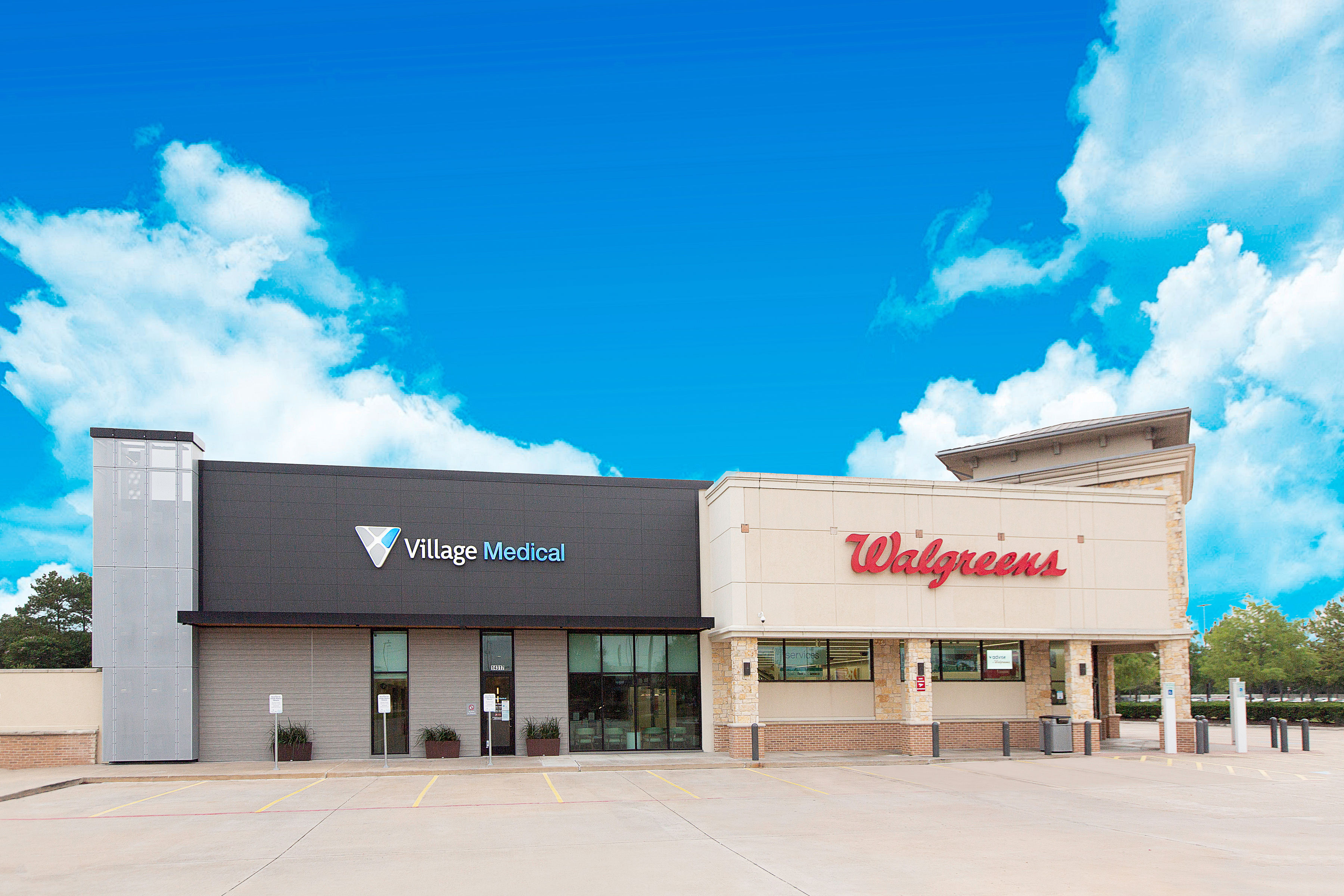
Walgreens is plotting a big, multiyear expansion of its health services with primary care company VillageMD. Photo credit: Walgreens
Walgreens Boots Alliance revamped its retail clinic strategy Wednesday, announcing plans to roll out hundreds of primary care clinics at its stores through a partnership with VillageMD.
But the company will face a tough battle ahead with competitors CVS Health and Walmart, according to Forrester Senior Analyst Arielle Trzcinski. While CVS has been building on its MinuteClinics, Walmart just recently began opening its own primary care clinics in some of its stores. The retail giant recently emphasized that it doesn’t see its health centers merely as a driver of sales, but is instead planning an all-out effort in healthcare.

Behavioral Health, Interoperability and eConsent: Meeting the Demands of CMS Final Rule Compliance
In a webinar on April 16 at 1pm ET, Aneesh Chopra will moderate a discussion with executives from DocuSign, Velatura, and behavioral health providers on eConsent, health information exchange and compliance with the CMS Final Rule on interoperability.
To be competitive, Walgreens will need to establish clear prices as Walmart has done, Trzcinski said in an email.
With the VillageMD partnership, the Chicago-based company plans to open between 500 and 700 primary care clinics attached to Walgreens stores in the next five years. Walgreens will invest $1 billion in equity and convertible debt in VillageMD over the next three years, starting with an initial $250 million equity investment. At the completion of its investment, Walgreens expects to have a roughly 30% ownership interest in VillageMD.
“What we’ve been seeing and frankly what led to this relationship: Many of those retail models are good when you have something that’s really low acuity. You’ve got a sore throat and you think it’s strep or you’ve got an ear infection,” VillageMD CEO Tim Barry said in a phone interview. “The real opportunity for us is at the bigger-picture level. … We’ve got to do a better job in how we take care of patients with chronic disease.”
In some ways, the clinics work like an old-school physician practice, where you go in and meet with your primary care physician. Patients will also have access to telehealth and in-home visits through the partnership.

A Deep-dive Into Specialty Pharma
A specialty drug is a class of prescription medications used to treat complex, chronic or rare medical conditions. Although this classification was originally intended to define the treatment of rare, also termed “orphan” diseases, affecting fewer than 200,000 people in the US, more recently, specialty drugs have emerged as the cornerstone of treatment for chronic and complex diseases such as cancer, autoimmune conditions, diabetes, hepatitis C, and HIV/AIDS.
This isn’t the first time Walgreens has tried offering in-store clinics. In the past, it operated its own retail clinics with a similar model to MinuteClinics. But it announced plans to close nearly half of them last year, to reduce costs and move toward a more primary care-centric model. The company has also tested partnerships with Jenny Craig, Optum’s MedExpress urgent care centers, and most infamously, Theranos.
Most people associate retail health with a small, in-store office where they go for something minor — a sore throat or a vaccine. But recently, retailers have been making healthcare a bigger focus of their stores.
Competitor CVS Health has taken a prolific approach to retail healthcare, with well over 1,000 MinuteClinics across the U.S. The company is building on that strategy with plans to turn 1,500 of its stores into “HealthHUB” locations by the end of next year, which allocate more space for healthcare services, CVS spokeswoman Mary Gattuso confirmed. The locations offer sleep apnea assessments, phlebotomy services, and dedicated space for wellness classes. In its first year, CVS Health said it saw increased foot traffic and sales at its HealthHUB concept stores in Houston.
Walgreens’ primary care-centric model is a decidedly different approach. The company also picked Houston for its pilot, where it opened five primary care locations connected to its stores. A Walgreens spokeswoman said the company saw high patient satisfaction scores and improved medication adherence, which led to the decision to move forward.
The companies plan to open 50 locations in the next 12 months, split between Arizona and Texas. They plan to expand to a total of 30 markets within five years period. More than half of the clinics will be located in medically underserved areas or locations where there is a shortage of health professionals.
The biggest feature of the partnership is the ability for pharmacists and primary care physicians to work in tandem to come up with care plans. For example, a primary care doctor could walk a patient with COPD through how to best use their inhalers. Or, if a patient was taking eight different medications, a pharmacist could look at their records to do a complete medication review and sync them up so they all have the same refill date.
“There’s a lot of complexity we create in the healthcare system that makes achieving better health difficult,” Barry said. “For people who make up the vast majority of healthcare spending, you need a different care model.”












